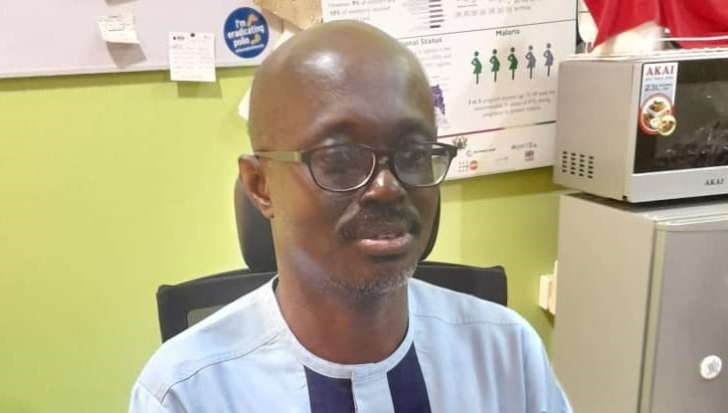The Ghana Health Service has commenced the rollout of the newly introduced malaria vaccines in 136 districts in 11 regions as part of efforts to eliminate the devastating impact of malaria on children.
The sub-national introduction of the vaccine, which is now part of the routine child immunisation programme in Ghana, will lead to the vaccination of about 200,000 children between the ages of six months and 18 months each year.
The vaccine doses will be administered in four schedules for children at the ages of six months, seven months, nine months and 18 months, to be fully protected.
Successful piloting
The initiative follows the successful implementation of the malaria vaccines – RTS, S/AS01 – on two pilot basis which started in 2019 and ended on December 31, 2023.
The first phase covered all communities in 42 districts in various regions such as Volta, Oti, Central, Upper East, Bono East and Ahafo.
Based on the encouraging outcomes of the first phase exercise, the second phase was expanded to cover 51 other districts within the same regions that were not covered during the first phase.
The vaccine is recommended by the World Health Organisation (WHO) as a second option for preventing malaria in high-transmission areas, including West Africa.
Expansion
Briefing the Daily Graphic on the exercise in Accra last Wednesday, the Deputy Director of the GHS in charge of Disease Control, Dr Kwame Amponsah-Achiano, said the third phase, which had just commenced, would take care of 43 districts in the Upper West, Savannah, Northern and Western North regions.
“The third phase takes care of 43 districts within the four new regions and this will add to the existing 93 districts which have all their communities implementing the malaria vaccines,” he said.
“This is a sub-national introduction, meaning that it is not all the regions, but eventually within the next three to five years, we would have covered the rest of the country,” Dr Amponsah-Achiano said.
He said Ghana started implementing malaria vaccination on a pilot basis in 2019 along with Malawi and Kenya.
The exercise, the Deputy Director of GHS, Disease Control, said, was to allow the three countries to learn lessons from malaria vaccines in the field to determine how it would fare in the routine immunisation mode.
Future expansion
Dr Amponsah-Achiano, who is also the Programme Manager of the Expanded Programme of Immunisation of the GHS, said following the positive outcome of the pilot exercises, WHO recommended the vaccine for wider use across the West African sub-region and places where the malaria plasmodium falciparum was endemic.
“And so for us as a country, and for other countries that started the pilot, we were doing phased introduction of the vaccine,” he said.
Dr Amponsah-Achiano gave an assurance that eventually, malaria vaccination would go national, depending on the burden of malaria in regions that were most challenged in terms of malaria.
The national exercise would be carried out in collaboration with the National Malaria Elimination Programme, which was still part of the GHS, he explained.
Impact
Asked what were some of the impacts of the previous two phases of the exercise, Dr Amponsah-Achiano said data from the three implementing countries showed a decrease in child mortality, irrespective of the cause of death.
“Deaths among children reduced by more than 13 per cent and this is quite remarkable for the implementing countries,” he said.
Dr Amponsah-Achiano said for Ghana, statistics had shown that malaria had been on the decline, especially in areas where malaria vaccines were being used as add-on to existing interventions.
“So, where the malaria vaccines are added to the existing interventions such as the use of insecticidal bed nets, indoor residual spraying, the seasonal chemoprevention and prompt diagnosis and management of malaria, the decline is even drastic,” the Deputy Director said.
Lessons
Throwing light on some key lessons learnt during the implementation of the vaccines on a pilot basis, Dr Amponsah-Achiano said every child needed four doses of malaria vaccine to be fully protected, starting from six months.
“The last dose was then at 24 months but we realised that because it was quite an older age group it was a bit difficult to get a fourth dose.”
“And as the science permitted, we then had to align with our 18 months vaccination which is for measles and meningitis at 18 months and as soon as we did that, we saw that coverage had gone up for the fourth dose,” he said.
The public health expert added that if communities were properly engaged ahead of every immunisation, it led to high acceptance of the vaccines.
“We needed to continuously orient healthcare workers, especially those who had come afresh,” Dr Amponsah-Achiano said.

